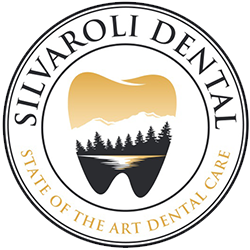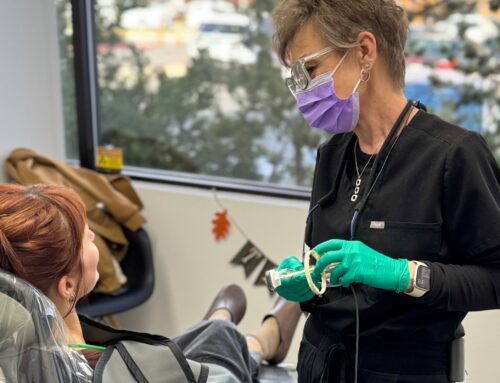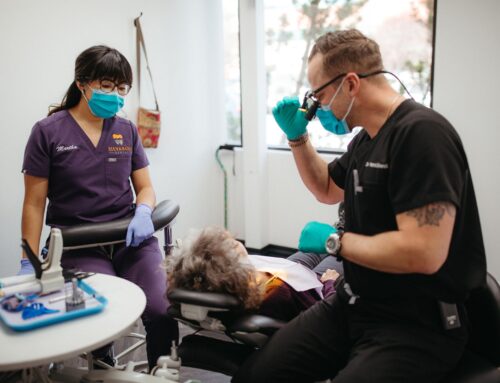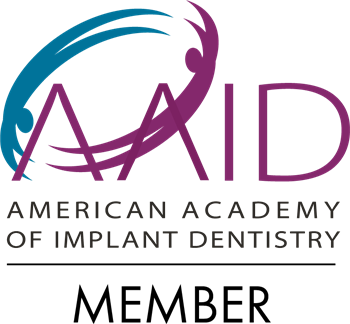Most people will get a cavity at some point in their life. Though this is a common dental issue, and easily treatable if caught early, cavities are the number one cause of tooth loss! Generally people don’t know much about cavities other than the fact that they are bad for your teeth, but we’re here to change that. When you understand what a cavity is, and how to prevent them, you’ll be better able to maintain a healthy smile!
What are cavities?
Cavities are small holes in your teeth that can be caused by a number of things, but the most common cause is plaque. Plaque is a sticky film of bacteria that forms on your teeth during your day to day life. When plaque isn’t removed, it hardens and turns into tartar. Tartar is much harder to remove than plaque and can only be removed by a dentist.
Tartar is harmful to your teeth because it can irritate your gums and cause them to bleed. It can also lead to cavities. Cavities form when the bacteria in plaque and tartar start to eat away at your tooth enamel. Tooth enamel is the hard outer layer of your teeth that protects them from decay. When a cavity eats away at your tooth enamel, it creates a small hole where more bacteria can enter your tooth and cause infection and decay.
The most common causes of plaque and tartar that lead to cavities are:
- Poor dental hygiene
- Poor diet, high in sugar and starch
- Fluoride deficiency
- Chronic diseases or medication that inhibit saliva production
- Drug use
- Smoking
Cavities are most likely to form in the areas of your mouth where plaque and tartar can build up, such as in between your teeth or on the back of your molars. However, they can form anywhere in your mouth.
Because cavities cannot be seen by the naked eye, it is important to visit your dentist regularly. They’ll check for any signs of tooth decay (like cavities) with a dental exam and X-rays. The earlier cavities are caught, the easier they are to treat.
How do I know if I have a cavity?
Cavities generally cannot be seen by the naked eye. Your dentist can correctly diagnose and treat a cavity, but if you notice any one these symptoms happening on your teeth, it’s time for some dental care:
- Increased sensitivity
- Bad breath or bad taste in mouth
- Mild discoloration of tooth surface (As the cavity advances on the tooth’s dentin, a dark spot will appear and the tooth sensitivity will increase)
- Pain when chewing certain foods like hard candy (This happens if a cavity has taken up residence within old fillings)
If you notice these symptoms and the cavity is not treated at this point, the tooth can become prone to infection or even abscess.
How are cavities treated?
Depending on the cavity’s severity, there are a couple types of dental treatments available. The most common procedures are:
- Fillings – Used for small cavities. Fillings require removing the affected portion of the tooth and replacing it with filling materials such as porcelain or composite resin.
- Crowns (or caps) – Used for larger cavities. Dental crowns require removing the decayed portion of the tooth and reshaping the remaining tooth. This provides a base for the crown, which will then be cemented over the tooth base. This provides a structure that functions like a normal tooth and protects from damage.
- Root canals – Used in severe cases. Root canals involve removing the tooth’s pulp and nerve and sealing them to prevent food and saliva from entering. Root canals are often followed with a crown to protect the tooth.
Your dentist will be able to advise you on the best treatment for you and will give you tips on how to prevent future cavities.
How can I prevent cavities?
The good news is that cavities can be prevented with good oral hygiene habits. Eating a healthy diet and avoiding sugary drinks can help prevent them. The best steps you can take to maintain good oral hygiene and prevent cavities are:
- Brush your teeth twice daily
- Floss at least once a day
- Minimize high in sugar and starch intake
- Visit the dentist every six months for a complete check-up
- Get frequent dental cleanings. We recommend a professional cleaning at least once a year if you do not smoke (sooner if the tartar build-up is high) or twice a year if you smoke or chew tobacco.
Cavities are common, but they are easily treated and should not affect your busy life! If you are due for a teeth cleaning and dental checkup, don’t hesitate to contact our office. We offer reliable and affordable cavity treatment in Reno to patients across Northern Nevada.
Contact
Hours
Location
601 W. Moana Ln #1
Reno, NV 89509






